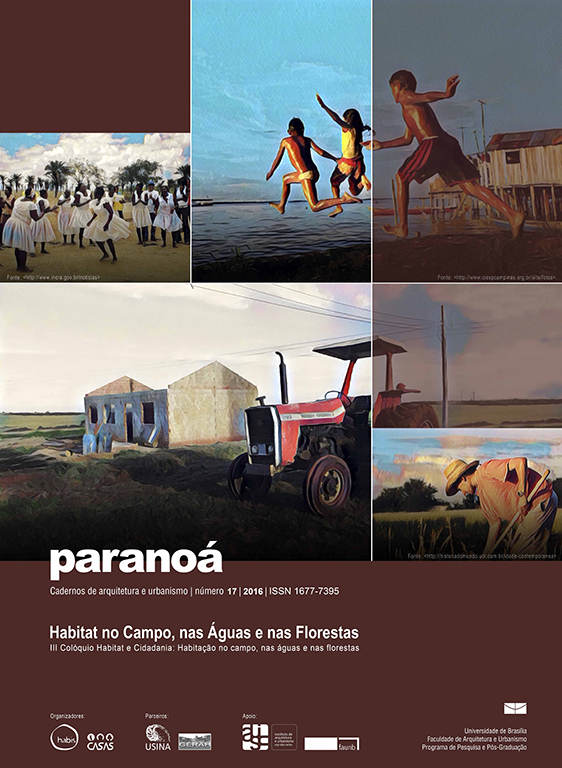Projeto de assentamento Maisa: conflito entre os saberes técnico e popular no processo de planejamento físico-espacial do seu habitat
DOI:
https://doi.org/10.18830/issn.1679-0944.n17.2016.11Keywords:
Planning process, Habitat, Technical x popular knowledge conflictsAbstract
How can the architect and urbanist assimilate knowledge and improve his professional practice from the situations of conflict between the technical and the popular learning in rural areas? This article relates the involvement of a professional in planning and conception of the habitat space at Maisa settlement (19,702 ha), remaining of a large fruit company in RN. It represents a pioneering experience in the country because for the first time ”“ by State guarantee, through INCRA ”“, a technical assistance institution (AESCA) for social movement (MST) legally hires a professional in architect and urbanism for this purpose in order to introduce new knowledge. Thus, in 2005, through participatory methodology, the technical team, leaders and settlers, coordinated by the MST, conceived the project of the habitats (denominated agrovilas by INCRA) Pomar, Apodi, Real and Montana. We experienced conflicts of various natures: placement of habitats; size of the living space; housing model; construction mode (either together or hired by the contractors). From that it has been learned that the final decisions must be a result of the collective evaluation of the limits between popular knowledge and technical needs by understanding both the ruptures and domination moments and taking advantage of them as well.
Downloads
References
BOURDIEU, Pierre. Coisas Ditas. São Paulo: 1ª ed. Brasiliense, 2004.
DEL RIO, Vicente. Introdução ao desenho urbano no processo de planejamento. São Paulo: Pini, 1990.
FERNANDES, Bernardo Mançano. Questão Agrária, Pesquisa e MST. Cortez, São Paulo: Cortez, 2000.
FOUCAULT, Michel. Vigiar e Punir: nascimento da prisão. Petrópolis: Vozes, 1987.
Downloads
Published
How to Cite
Issue
Section
License
Autores que publicam nesta revista concordam com os seguintes termos:
- Autores mantém os direitos autorais e concedem à revista o direito de primeira publicação, com o trabalho simultaneamente licenciado sob a Licença Creative Commons Attribution que permite o compartilhamento do trabalho com reconhecimento da autoria e publicação inicial nesta revista. http://creativecommons.org/licenses/by/4.0
- Autores têm autorização para assumir contratos adicionais separadamente, para distribuição não-exclusiva da versão do trabalho publicada nesta revista (ex.: publicar em repositório institucional ou como capítulo de livro), com reconhecimento de autoria e publicação inicial nesta revista.
- Autores têm permissão e são estimulados a publicar e distribuir seu trabalho online (ex.: em repositórios institucionais ou na sua página pessoal) a qualquer ponto antes ou durante o processo editorial, já que isso pode gerar alterações produtivas, bem como aumentar o impacto e a citação do trabalho publicado (Veja O Efeito do Acesso Livre).















